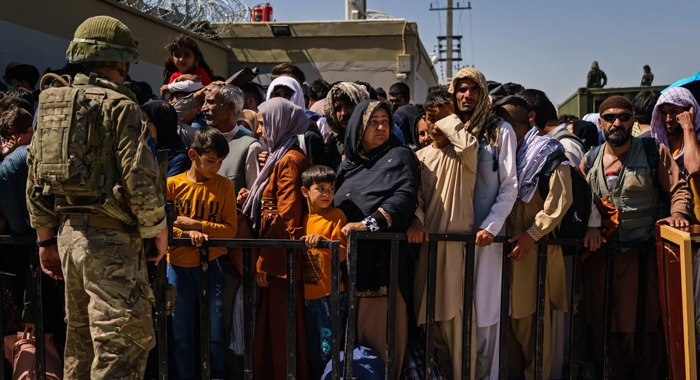In a move that has triggered deep concern among human rights advocates and Afghan American communities, the US Department of Homeland Security (DHS) has officially ended Temporary Protected Status (TPS) for Afghan nationals, putting thousands at risk of deportation in the coming weeks.
The decision, announced by DHS Secretary Kristi Noem, affects approximately 14,600 Afghan citizens who have been residing in the United States under TPS since 2022. The protection had been granted in response to the ongoing conflict, economic instability, and humanitarian crisis following the Taliban’s return to power in 2021. The Biden administration had renewed Afghanistan’s TPS designation in September 2023, citing continued unsafe conditions, with protections initially set to expire in May 2025.
In her statement, Secretary Noem said that Afghanistan no longer meets the statutory requirements for TPS designation, and the department will release a formal notice detailing the decision in the coming days.
The move has drawn swift criticism from refugee advocates and civil society organisations. “Ending TPS for Afghans is not only premature but deeply troubling,” said Krish O’Mara Vignarajah, President of Global Refuge. “Conditions in Afghanistan have not improved—they remain dangerous and unstable. This decision risks returning vulnerable individuals to a place where their safety and freedoms cannot be guaranteed.”
Afghanistan continues to experience severe humanitarian challenges, including widespread poverty, food insecurity, repression of political dissent, and sweeping restrictions on women’s rights under Taliban rule.
Since the U.S. withdrawal from Afghanistan in August 2021, over 80,000 Afghans have been evacuated, many through emergency parole programs. While some evacuees have adjusted their status through asylum or Special Immigrant Visas (SIVs), thousands still rely on TPS as their only legal protection from removal.
Advocacy groups have also raised alarm over recent cases in which Afghan parolees received notices to depart the U.S. following the revocation of their parole. DHS has confirmed that it is exercising its discretionary authority in certain cases but has not disclosed the scope or number of individuals affected.
The decision is seen by many as part of a broader rollback of humanitarian protections under the Trump administration, which assumed office earlier this year. While officials have framed the move as an effort to restore “the rule of law,” critics argue it targets vulnerable populations and undermines America’s commitments to its wartime allies.
Legal experts say court challenges to the decision remain possible. A federal judge earlier this year blocked a similar attempt to end TPS protections for Venezuelans, citing insufficient justification and potential political motivations.
As the DHS decision takes effect, thousands of Afghan families find themselves in legal uncertainty, fearing forced return to a homeland they fled amid war and persecution.





